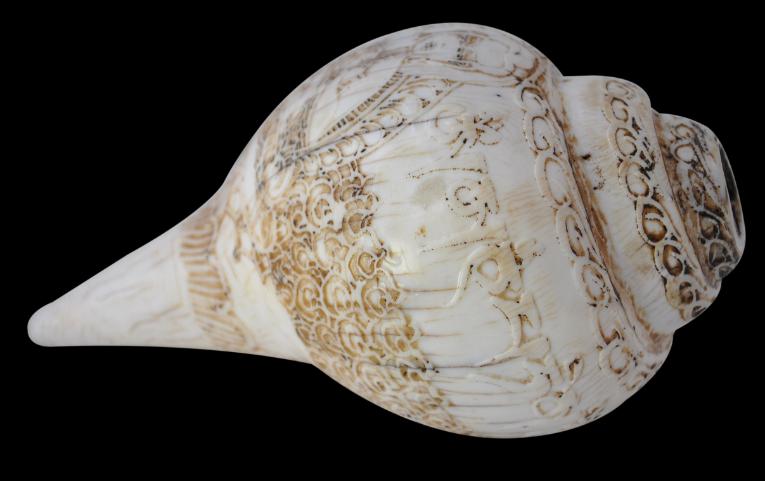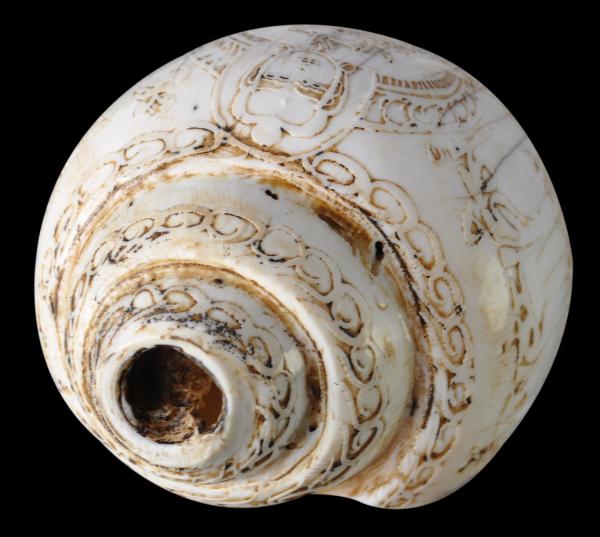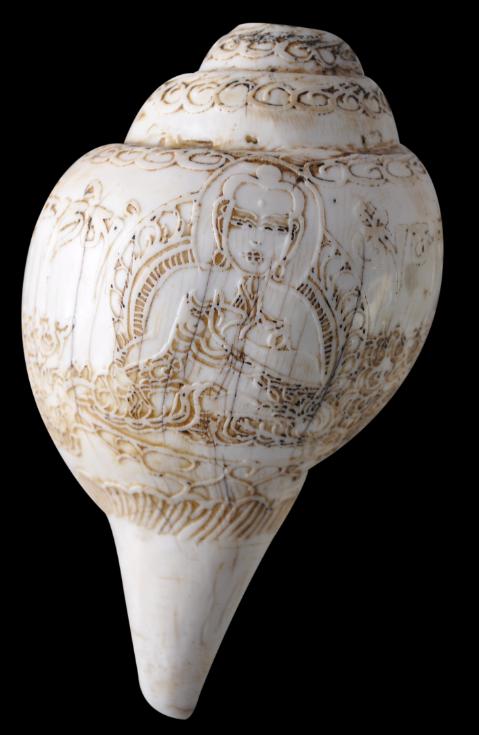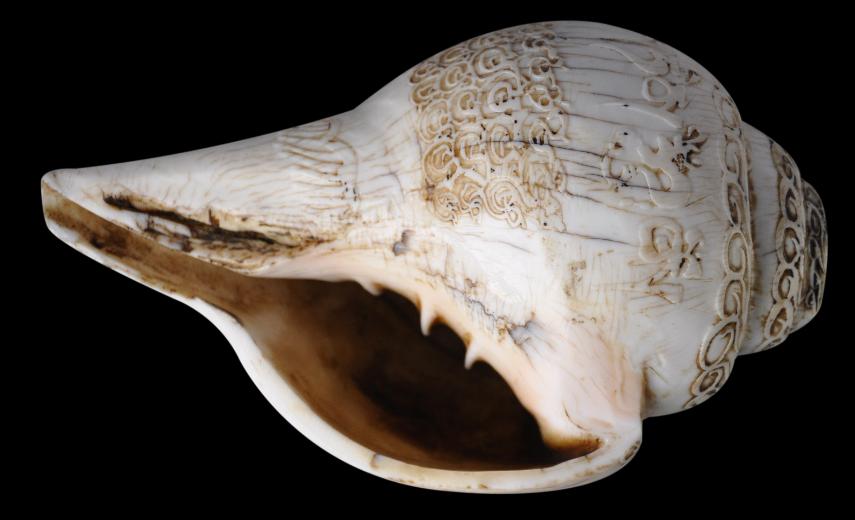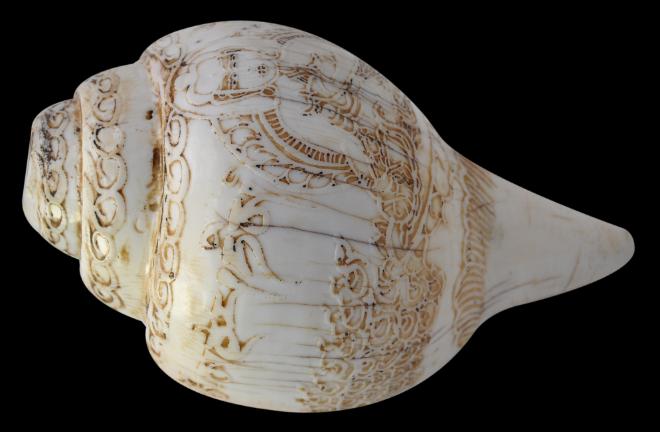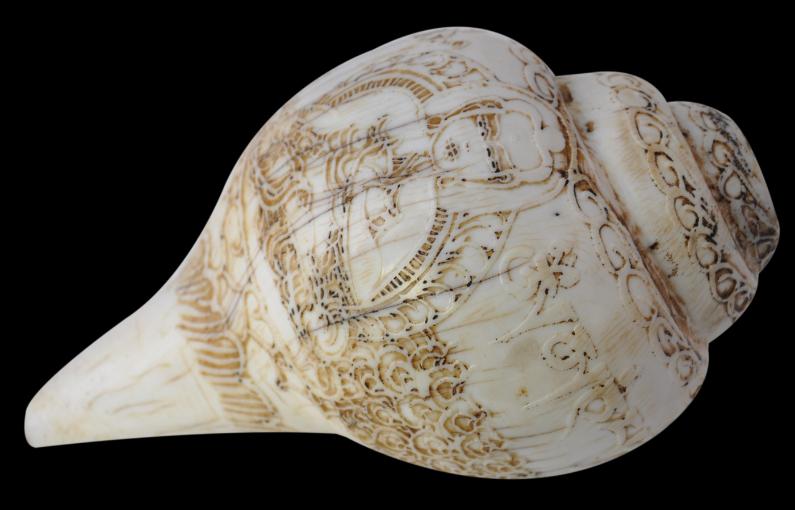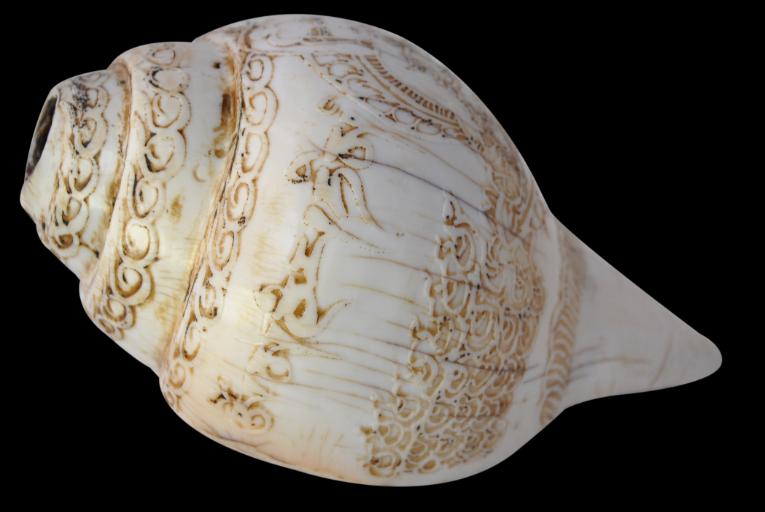
Carved Buddhist Tibetan Conch Shell
Conch Shell Carved with the Buddha
Tibet
18th century
length: 16cm, height: 8.3cm
This conch shell trumpet has been carved extensively with a central figure of the Buddha sitting cross-legged, styled as Adibuddha. Single lines of Lantsa script are to either side of the Buddha’s head, including the mantra ‘Om Mani Padme Hum’ (which approximately translates as: ‘Hail to the Jewel In the Lotus’).
The Buddha is seated amid swirling cloud-flame motifs. The shell has been converted into a usable trumpet or horn with the removal of the end of the point to provide a blowing hole. The conch has a good, clear sound when blown.
The carving has been worn smooth from handling and ritual use. The patina and age are abundantly clear.
Such shells are important ritual objects in Tibetan Buddhism. They are used as ceremonial trumpets in prayer rituals, to summon monks to prayer, to summon spirits as well, and to invoke rain and water (Reynolds, 1978, p. 80.) Shanghai Museum (2001, p. 136) illustrates a conch shell trumpet carved with eight small Buddhas which is said to have been a gift from the Qianlong Emperor to the Dalai Lama.
Overall, this is fine piece with excellent patina.
References
Lama, M.N. Ritual Objects & Deities: An Iconography on Buddhism & Hinduism, Lama Art, 2003.
Reynolds, V., Tibet: A Lost World: The Newark Museum Collection of Tibetan Art and Ethnology, The American Federation of Arts, 1978.
Shanghai Museum, Treasures from Snow Mountains: Gems of Tibetan Cultural Relics, Shanghai Museum, 2001.
Provenance
UK art market; old English collection
Inventory no.: 1996
SOLD
to see an Indian example.

